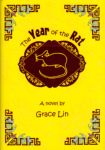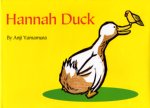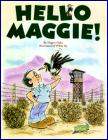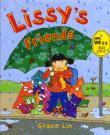|
|
Interesting Asian Pacific American Trivia
|
The following trivia was collected and place in our 2007 Asian Pacific American Heritage Celebration program booklet. Between the performances at our event, we asked the audience questions that were answered by these trivia items.
This year, for our May 10th Asian Pacific American Heritage Celebration in San Mateo's Central Park, we hope to do this again. Please help us - send us your favorite tidbits on the Asian Pacific American experience. If you wish, you can also send me the questions that are answered by your interesting tidbits. If possible, please also send me Internet links, book titles, or other source information for your submissions.
For you teachers out there, perhaps you can create a class assignment out of this exercise. For you historians and amateur historians out there, I know you have lots of interesting Asian Pacific American history that you can share with us. Now is your chance to participate.
Hurry everyone, we are working on our program and if your submission is to be used, we must have it within the next few weeks. I also hope to use your submissions for next month's newsletter. Since we are deep into the planning for our event, we could really use your help with the writing of next month's newsletter.
Thank you in advance.
APA Trivia
- The US Census Bureau American Community Survey estimates for 2005
| Total Population | Asian Pacific Islander | Percentage of Total |
| City of San Mateo | 93,481 | 21,647 | 23.1% |
| County of San Mateo | 689,271 | 169,553 | 24.6% |
| California | 35,278,768 | 4,490,059 | 12.73% |
| United States | 288,378,137 | 12,868,845 | 4.46% |
- On October 18, 1587, 33 years before the pilgrims arrived in New England and 20 years before the founding of Jamestown in Virginia, Filipinos were a part of the Spanish Unamuno's Expedition that landed on the coast of California. This marked the first recorded arrival of an Asian to what is now the continental United States.
- Filipinos settle in Louisiana in 1763 and found several villages in the area.
- Filipino Mexican Antonio Miranda Rodriguez and his daughter Juana Maria move to California in 1781 and become part of the founding settlers of Los Angeles.
|
- Chinese seamen named Ashing, Achun and Aceun, and 32 unnamed East Indians were stranded in Baltimore, Maryland by their captain John O'Donnell on August 9, 1785. This is the first recorded instance of Asians on the East Coast of the United States. It is not known whether they stayed or ever returned to Asia.
- A young Hawaiian woman named Winee, personal servant of Frances Barkley, the wife of Captain Charles Barkley of the ship Imperial Eagle, travel to the West Coast of North America in 1787. She is the first Hawaiian known to have visited the Northwest.
- Hopoo and Obookiah, two Hawaiian men, travel to New Haven Connecticut in 1807. Hopoo later serves on an American ship during the War of 1812. After the war, both men study for the ministry in New England and Obookiah writes a Hawaiian translation of the book of Genesis. Obookiah begins work on a Hawaiian grammar, dictionary, and spelling book, but dies before it is completed. Hopoo returns to Hawaii and helps establish the first Protestant mission in Honolulu. Years later he goes to California to join the Gold Rush.
- Siamese Twins Chang and Eng come to America in 1829 and become part of PT Barnum's circus in 1832. In Oct. 1839 they become US Citizens and eventually settle in White Plains, North Carolina.
- A whaling ship rescues a shipwrecked fisherman named Toraemon and three of his fellow Japanese shipmates in 1841. One of the castaways by name of Nakahama Manjiro goes on to further adventures in America while Toraemon settles in Honolulu, Hawaii.
- On May 7, 1843, Manjiro arrives in New Bedford, MA and becomes the first well-recorded migrant from Japan to the United States.
- Yung Wing and two other Chinese arrive in New York in 1847 to attend school. Yung Wing becomes a naturalized American citizen on Oct. 30, 1853 and eventually graduates from Yale in 1854. He is one of the earliest known APIs to graduate from an American University.
- Pyon Su becomes the first Korean graduate from an American University (University of Maryland) in 1888.
- In 1892 Philip Jaisohn becomes the first Korean to gain American citizenship and a medical degree.
- Approximately 2000 Asian Indians lived in the United States in 1900.
|
|
Editor's Message
Hello Everyone,
First of all, thank you to all of you that donated to our special California Council for the Social Studies fund. All of the teachers that received coupons resulting from your donations were most appreciative. In these tough times, I wish we had more coupons to give out.
For those of you that may have lost your job or will be losing your job soon, you probably don't want to hear me complain about being over worked. However, I do feel like apologizing for this minimal effort for this newsletter. As I was saying to my friend Cliff, I feel a little like I cheated on this one. I came up with the list of trivia last year and over the course of several newsletters before that.
So what have I busied myself with - we're still working on a fascinating new book about the town of Cressey California. This memoir by Eugene Lee is real slice of American history about a small multicultural town in rural California. We hope to be done with it soon, so stay tune for an upcoming announcement.
AACP and a group of local Asian American organizations have also been busy with the planning of this year's Asian Pacific American Heritage Celebration. We'll tell you more about this in next month's newsletter. For now, we invite all of you living in the near by communities to come and volunteer for our event. We welcome your help.
Thank you Sharon for helping with this month's newsletter.
Bye for now.
Leonard Chan
Executive Editor
|
Up Coming Events
Here are some events that AACP will soon be attending.
Give Us Your Feedback
Please feel free to send us your reviews, comments, and book suggestions You can contact us by going to the following page and sending an email to us through the online form -
http://asianamericanbooks.com/contact.htm
|
The Politics of Race and Religion
An Editorial by Leonard D. Chan
|
They say you shouldn't talk about politic, religion, and race if you wish to avoid arguments, but how can you resist during this election year?
It seems that everywhere you go people are talking about these issues. I'm not sure what I could say that isn't already being said by all of you out there, but here are some of my quick thoughts on some of the things being discussed out there. Please don't cancel your subscription if I should offend you. Just send me your feedback.
So what's so wrong if Barak Obama or anyone running for president were Muslim? I was kind of surprised about how Bill Cunningham, a conservative talk radio host, warmed up a Cincinnati rally by repeatedly saying Obama's middle name of "Hussein." I was even more surprised when someone I know, actually took this conservative baited and thought Obama was Muslim or possible a converted Muslim. Then there was the controversy over the pictures of Obama wearing a turban. Obama and members of his campaign took great offense at people's attempt to portray him as being Muslim.
So what's so wrong if we did have a Muslim president? A Muslim American president would most likely not make the same mistake as Senator McCain in thinking that the mostly Shia populated Iran was supporting Sunni al-Qaida terrorist. A Muslim American president would most likely have little problem in understanding the differences between Sunni and Shia Islam.
A person's religious beliefs are a poor predictor of that person's propensity towards good or evil or whether that person would make a good leader or not. People of many varieties of faiths have committed atrocities as well as good deeds. Furthermore, people of no religious affiliation can be just as good or bad as anyone else.
|
We all try to pick leaders that are like ourselves or believe in similar things to our beliefs, but labels are often inadequate in characterizing a person. I would surely not support a politician solely on the basis of their being an Asian Pacific American or on what religion they subscribe to. You shouldn't either. People with a certain label may have prevalent traits, but never assume that they are all the same.
Regarding Obama's statement about how his white grandmother confessed to him about fearing black men who passed her on the street and how "that's just the nature of race in our society," I don't think so. Hey, I might cross the street too if I saw a black man coming down the street, but wait, race isn't necessarily the main reason for my decision.
If I saw someone that looked dangerous, whether they were black, white, or even Asian Pacific Islander, I'd consider crossing the street. I highly doubt Obama's white grandmother would have any fear of someone with the stature and demeanor of say actor Gary Coleman. I'd be willing to bet that most of you would have fewer problems with people that looked harmless versus people that looked like gang members. Once again labels, such as race, don't adequately describe the situation and the behavior.
Obama's grandmother's mistake was in labeling black men as being scary and in not recognizing that it wasn't a person's race that she feared, but rather people that had variety of scary features that she feared.
Whether or not you are a Clinton, Obama, McCain or someone else support, their campaigns are great for those that wish to engage in discussions on race, sexism, and prejudices in America. What better time the present to discuss these issues? Please stay engaged.
|
ADDITIONS TO OUR WEBSITE
The following books are discounted for subscribers to our newsletter. The discounts on these books end April 16, 2008.
|

|
The Year of the Rat
By Grace Lin
2008, 182 pages, Hardback.
In this sequel to Grace Lin's The Year of the Dog, Pacy is now a year older and faces new challenges. Her best friend Melody, the only other Chinese girl in her class, is moving to California. Will their friendship survive? Will Pacy make new friends? What other changes will happen in the Year of the Rat? Get a copy of this enjoyable book and find out.
View Additional Information
ORDER -- Item #3495, $14.99 ... for newsletter subscribers $11.99
|

|
God of Luck
By Ruthanne Lum McCunn
2007, 239 pages, Hardback.
God of Luck by Ruthanne Lum McCunn is the story of a young man Ah Lung, who is kidnapped from his village in China, and his wife Bo See who raises silkworms to earn money for his release. Ah Lung is enslaved to work in the guano fields of Peru, but he never loses faith that he will return to his beloved wife in China. This story takes place during the mid to late 1800's and exposes the dirty business of trafficking Asian labor to Latin America.
View Additional Information
ORDER -- Item #3497, $23.00 ... for newsletter subscribers $18.40
|

|
Hannah Duck
By Anji Yamamura
2008, 23 pages, Hardback.
When Hannah Duck takes her Sunday walks, she never gets any further than her front gate. After admitting this to her friends they encourage her to confront her fears and eventually join Hannah on her discovery of the new and beautiful world beyond the gate.
This imported tale from Japan is a wonderful parable on the universal values of friendship.
View Additional Information
ORDER -- Item #3498, $15.95 ... for newsletter subscribers $12.76
This book is not currently in stock. Order now to reserve your copy at this special price and we will ship it to you as soon as possible.
|

|
Hello Maggie
By Shigeru Yabu
Illustrated by Willie Ito
2007, 33 pages, Paperback.
Hello Maggie! is based on the real life story of Shigeru Yabu's World War II experience in the Heart Mountain, Wyoming internment camp. In this story book, Shig tells the story of how he rescues a baby magpie after he and some other kids from the camp knock the bird's nest out of a near by tree. The magpie becomes Shig's pet and friend and helps him, his family, and friends cope with their confinement.
View Additional Information
ORDER -- Item #3499, $11.95 ... for newsletter subscribers $9.56
|

|
Lissy's Friends
By Grace Lin
2007, 32 pages, Hardback.
When Lissy the new girl at school has trouble making friends, she literally starts to make her friends, origami friends that is. Learn how Lissy's paper friends help her find new friends.
The surprising epilogue and end page, with instructions on folding your own friend, makes this a delightful book.
View Additional Information
ORDER -- Item #3496, $15.99 ... for newsletter subscribers $12.79
|
Copyright © 2007 by Asian American Curriculum Project, Inc. (a non-profit organization since 1970)
Visit our website at AsianAmericanBooks.com
|